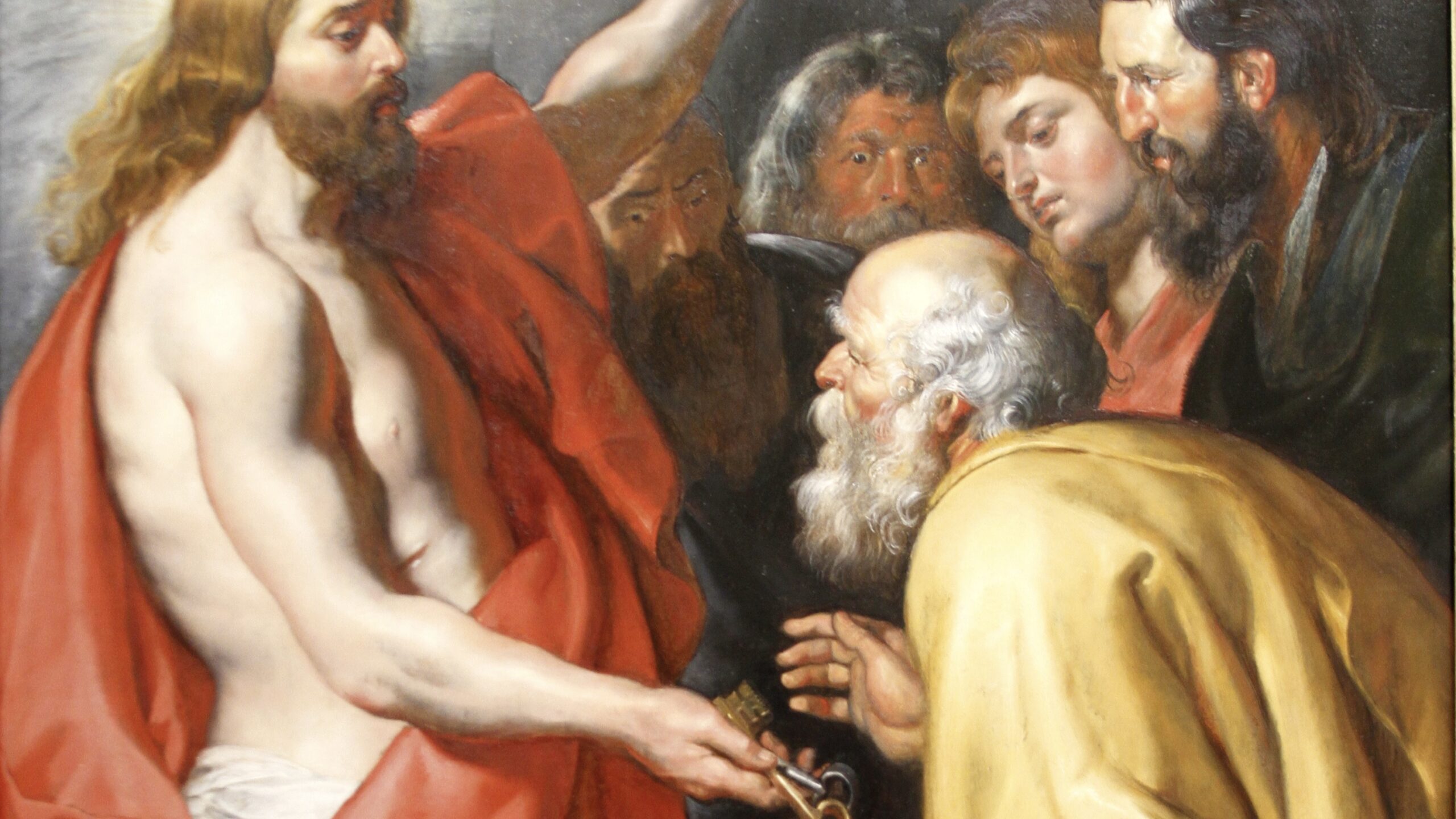
exhort you as your fellow elder,” St. Peter writes, and it’s hard to know who first tried to use this verse as a proof-text against papal primacy. Why, Peter himself says he’s just one among many! So why does the pope lord it over the whole Church?
One thing it’s not hard to know is that the Church Fathers are full of assertions that Peter does have primacy, and not one of them ever cites 1 Peter 5:1 to refute the idea. If the text does deny papal primacy, apparently none of the Church Fathers were aware of it. Dear reader, you’re welcome to search an index of Scripture references in the Church Fathers if you think you can find any of them citing 1 Peter 5:1 to deny the primacy of Peter. Surely they were aware of the text—Cyprian refers to it, as do Tertullian and Jerome—but none of them think it means that Peter is no more than the equal of all other bishops.
In fact, Cyprian is one of our earliest attestations for the primacy of Peter:
The Lord speaks to Peter, saying, “I say unto you, that you are Peter; and upon this rock I will build my Church, and the gates of hell shall not prevail against it. And I will give unto you the keys of the kingdom of heaven; and whatsoever you shall bind on earth shall be bound also in heaven, and whatsoever you shall loose on earth shall be loosed in heaven.” And again to the same He says, after His resurrection, “Feed my sheep.” And although to all the apostles, after His resurrection, he gives an equal power … yet, that He might set forth unity, He arranged by His authority the origin of that unity, as beginning from one [On The Unity of the Church 4].
The successors of the apostles do have equality, but only insofar as it derives from their union with Peter.
Likewise St. Clement of Alexandria calls Peter “the chosen, the pre-eminent, the first of the disciples.”
Likewise St. Cyril of Jerusalem, in his Catechetical Lectures [2:19], calls Peter “the chiefest and foremost of the apostles.” St. Cyril repeats this in CL 17:27; Peter is “the chief of the Apostles and the bearer of the keys of the kingdom of heaven.”
The Catechetical Lectures have significant authority here because St. Cyril, the bishop of Jerusalem, wrote them in order to instruct new converts. And he’s teaching them the primacy of Peter as an article of faith. No one thinks to say, You know what? 1 Peter 5:1 proves that’s wrong.
And there’s a good reason no one thought to say that: The text does not mean that. It does not mean what the anti-Catholics think it means. They read far too much ecclesiology into the word “fellow” in “fellow elder,” and common usage of the term does not support their misreading. A simple example is any U.S. president’s regular use of the expression “my fellow Americans” or “my fellow citizens.” The president hardly means that he has no special authority over his “fellow Americans.” He only means to emphasize what unites him to those he leads: He’s an American, he’s a citizen.
So too with 1 Peter 5:1. The first pope is emphasizing unity, not absolute episcopal equality. That he is united with them as a bishop does not imply that he has no more authority over them than any other bishop.
If I’m wrong here, then someone needs to dig up some credible authority for the anti-Catholics’ strained exegesis of the text.
Discover more from To Give a Defense
Subscribe to get the latest posts sent to your email.